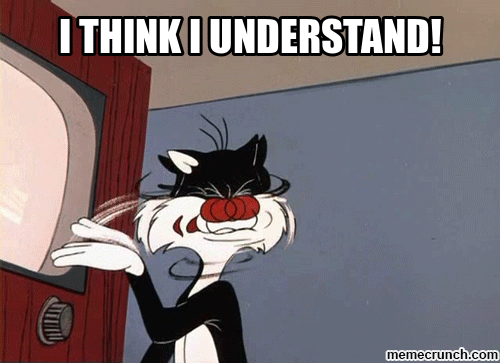I don’t think that exists in any court. It’s guilty or not guilty. There used to be not proven a long time ago, meaning obviously guilty but the prosecution didn’t do well enough.
Not quite jt.
In our criminal justice system, a person is PRESUMED to be INNOCENT, absent a finding of guilt beyond a reasonable doubt.
The burden of establishing that guilt beyond a reasonable doubt is always on the State, and never shifts to the Defendant at any point. The Defendant is not required to testify against himself, nor say anything at all, and his failure to testify cannot be held against him.
If the State fails to establish said guilt beyond a reasonable doubt, then that presumption of INNOCENCE remains.
Felony prosecutor speaking here.
He wasn’t found to be innocent, he was found to be not guilty. Two different things.
Again, there is a PRESUMPTION of innocence.
If he’s found “not guilty,” then that presumption of innocence has NOT been overcome.
Does a jury return a verdict of “innocent” or do they return a verdict of “not Guilty”?
They return a verdict of “not guilty.” However, that indicates that the presumption of innocence has NOT been overcome…and as such…REMAINS in effect.
So in the American justice system, the terms “not guilty” and “innocent” are synonymous terms.
Studies show that between 2-10% of the US prison population are wrongfully convicted. Therefore there is a difference between legally guilty and actually guilty. Just as there is a difference between not guilty and actual innocence. (Cough, OJ, cough cough, Robert Durst, cough, R Kelly)
Beat me to it Timmy. If you want to, you can go ahead and edit in Michael Jackson as well.
Timmy,
Along those same lines, it’d be interesting to know what percentage of defendants that beat the rap at trial did indeed commit the offenses that they were accused of, but ultimately got off simply because the burden of proof was too high to satisfy.
I’m guessing that that’s an even higher percentage.
In the end though, both stats are irrelevant.
What’s relevant is that a person who has not been found guilty in court beyond a reasonable doubt is PRESUMED innocent in our society, and as such, can be properly regarded as such if/when the jury returns a verdict of “not guilty.”
As for OJ, he is presumed innocent of murdering his wife, but is guilty of the other offenses that he’s been convicted of.
Regarding Michael Jackson, he’s presumed innocent as charged as well.
As for Kelly, wasn’t he acquitted at trial? Then he’s presumed innocent.
Presumed /= is
But we can’t presume anything to the contrary.
“Innocent as charged” as the saying goes.
I think you meant presumed innocent in court of law as society frequently prejudges based on what they learn from media.
True enough.
Innocent as a matter of law, not as a matter of public opinion.
By that logic there are also people who have been found guilty in the court of public opinion and been completely innocent. So if you’re saying that someone is not innocent simply because the legal system didn’t find them guilty, then you are part of the problem.

If you are going to fight this hard for presoomed innocence, you have to also extend that presumption to the guy’s accuser. This whole discussion started on the statement that false accusations were made because the defendant was found not guilty. The accuser must also be proven guilty. You can’t assume she is guilty of making a false accusation. Also, if its that cut and dry, what does it mean if she was tried and found not guilty of false accusation? How could both parties be innocent?
A wise old prosecutor once told me…there are NO “innocent” people in this business.


Seriously though.
Being accused doesn’t automatically make a person guilty. Not saying that it necessarily happened in this case, but people do indeed get FALSELY accused. It happens.
That said, one victim’s accusation could indeed be enough to convict someone. In the end, it’s all about that witness’ CREDIBILITY…and BELIEVABILITY.
Not sure what the evidence was in this case, but if the only evidence against the Defendant was the victim’s testimony, then obviously the victim in this case wasn’t very credible/believable. Without knowing what all of the evidence in the case was, I can’t say for sure though.
If that’s the case, then it doesn’t necessarily mean that she was lying…or that she was “guilty” of anything…just that the judge or jury decided not to believe her.
Draw your own conclusions from that!
But in the end, it means that ONE thing happened: the presumption of innocence was NOT overcome in that case.
Baylor sexual assault case is three years in the making
outline.com/Baylor sexual assault case is three years in the making
In a court filing last month, 15 Jane Does alleged that the university has not only delayed their case, but withheld a vital investigative report and essential documents, and has attempted to cover-up for university officials by placing attention and blame on the football team.
The public found out Baylor University mishandled multiple sexual assault cases after victims came forward. An outside investigation yielded a damning report determining the university and its athletic department systematically and for several years failed students who were sexually assaulted. Baylor administrators were accused of behavior perceived as “victim-blaming,” making football “above the rules, and denying that sexual assault even happened at the university.
The women now want the court to deny a protective order Baylor has filed. Baylor wants to protect documents and materials from G.F. Bunting & Co., its second public relations firm hired to assist with the scandal, saying the materials the victims are requesting aren’t related to the sexual assault cases.
